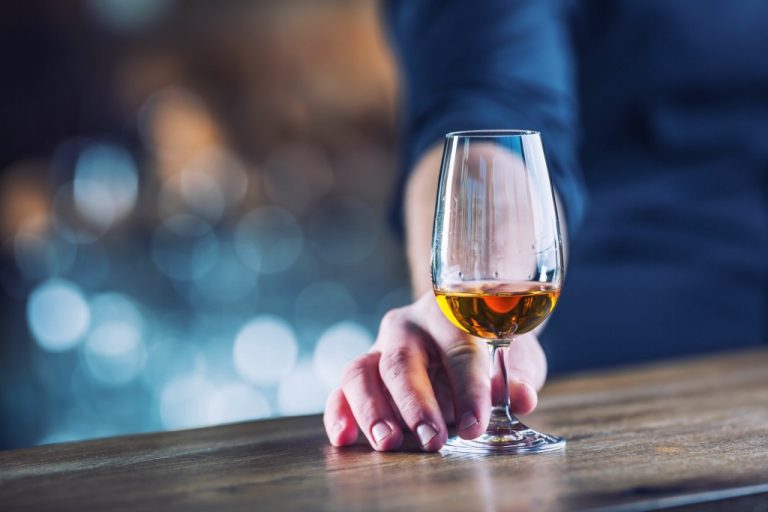If you want to drink, it may be best to do so on days where you feel relaxed, you’ve followed your usual daily routine, and you’ve avoided your other triggers, as this could reduce your risk of a migraine attack. Staying hydrated and keeping alcohol consumption to a minimum can decrease the chance of experiencing a headache. Individuals who experience severe headaches after drinking alcohol may also avoid alcohol altogether. Nausea and/or vomiting is just one of many symptoms a person living with migraine might experience. Because migraine is a highly nuanced disease, it is important to learn about all possible symptoms that may appear before, during or after a migraine attack, including less common ones such as aura. While anyone can experience DAIH, people with migraine are more susceptible.
- These symptoms may begin within minutes or hours of drinking and vary widely in severity.
- Many population studies show that patients with migraine consume alcohol in a smaller percentage than the general population.
- Even a modest amount of alcohol can cause people with migraine to develop a delayed headache or trigger an attack.
- Often, alcohol-induced headaches also have characteristics that resemble your usual headaches, whether they are migraines, cluster headaches, or tension headaches.
- It is known since antiquity that wine could be a trigger for migraine.
Pinot Grigio, chardonnay or sauvignon blanc would be a good place to start and are generally easy to find. While alcohol can help you feel sleepy and induce sleep, it tends to interfere with sleep in the later stages of the evening. People can talk with their doctors about possible methods to prevent or ease alcohol-induced headaches. However, the research suggests that alcohol may not be the only trigger and may also depend on other factors. Migraine is more common, affecting around 12% of people in the United States. This leads to excessive urination and dehydration, which may cause a headache after a small amount of alcohol.
Get the latest in health news delivered to your inbox!
Sure, they’re all restorative, but they aren’t going to make the hangover magically disappear. Studies have shown that many people are less effective at metabolizing alcohol in the liver due to genetic variances. All gin needs to be at least 40 percent Alcohol by Volume (ABV) in order to be classified as gin. The type of grape, as well as the length of fermentation, will affect the final product. Bourbon and whiskey both have more congeners because they are less heavily distilled which preserves the congeners from the fermented mash.

Many migraine sufferers find that keeping a diary helps them identify their own personal triggers and understand their patterns of migraines better. Drinking alcohol is a trigger for migraine in some people can alcohol cause migraines – one study found around a third (33%) of people who get migraines are sensitive to alcohol.4 Others react to hunger, or certain foods. For some people, an aura might occur before or during migraines.
Yes, Migraine IS a Disability
Therefore, the release of 5-HT possibly from central stores could represent a plausible mechanism for wine induced headache.
- People with migraine are more likely to have this type of reaction to migraine than those without.
- Red wine contains 20 to 200 times the amount of histamine than white wine.
- Many people find that only certain drinks trigger their attacks, so they only need to avoid specific beverages.
- Brandy, red wine, and rum have the highest levels of congeners, while gin and vodka contain fewer of these chemicals.
- Note that to qualify as a cocktail (or delayed alcohol-induced) headache, the pain must start within three hours of drinking.
- Original studies were selected if they reported in the results a numeric percentage of headache patients referring any ADs as a trigger factor.
- Some research suggests that congeners play a role in hangovers, although factors such as inflammation also contribute.
When migraine sufferers, also called migraineurs, are asked to list their food and beverage migraine triggers, alcohol is named the most often. A person may experience migraine after drinking if they are susceptible to it. Some people may experience an alcohol-related migraine between 30 minutes and 3 hours after drinking. 2021 research also linked lifestyle factors with alcohol drinking and smoking to cluster headaches and their severity. Making sure to drink plenty of water during and after alcohol consumption can decrease the chance of headaches.
Should people with migraine avoid alcohol?
However, a few negative experiences cannot justify the media and scientific information on alcohol as a major headache trigger and the suggestion of abstinence. In fact, to deny the beneficial effect of a low dose of alcohol in a wide number of people, who can also have a higher risk of cardiovascular disease like migraine patients [74, 75], is not medically appropriate. Migraine is very common, affecting one in five women, one in 16 men, and even one in 11 children. Migraine attacks are three times more prevalent in women, likely as a result of hormonal differences. Certainly genetic and environmental factors play a role in the development of migraine disease. Meaning if a parent has migraine, there’s about a 50 percent chance that a child may develop migraine as well.


